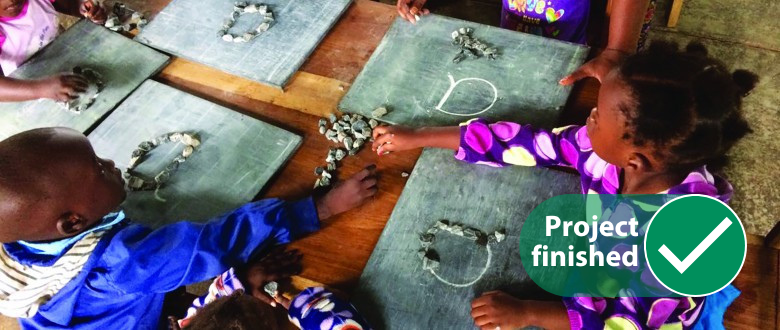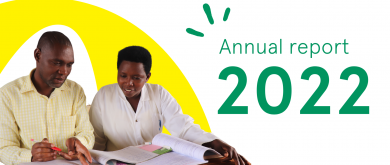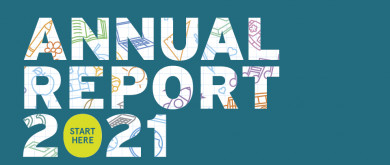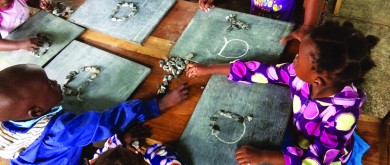
The government of Zambia has made significant investments and improvements in the provision of early childhood education (ECE) and primary education, notably in the field of literacy education. Yet, student reading levels in Zambia’s early grades of primary remain low; 64% of Zambia’s 2nd grade readers are not able to read.
The USAID Let’s Read project, a $48 million five-year basic education programme in Zambia, improves reading outcomes for approximately 1.4 million children attending Zambian public and community schools, from pre-primary (preschool) up until grade 3. VVOB contributes to USAID Let’s Read through the implementation of the ECE sub-strategy of the programme.
ECE teachers in 5 provinces of Zambia are supported in the provision of a quality, play-based emergent literacy programme, ensuring a smooth transition of young learners from pre-primary to primary education.
The ECE component of the USAID Let’s Read Programme implemented by VVOB ensures that the emergent literacy programme in Zambian ECE schools is aligned with the literacy programme in primary education, ensuring a smooth transition from pre-primary to primary.
The approach is based on four pillars:
- Development of an ECE pre-reading material package (including syllabi, teacher guidelines, learning materials, mentoring and coaching instruments, etc)
- Development of an ECE parental and community outreach model for ECE teachers, school leaders
- Capacity development of teachers in the use of the play-based emergent literacy material package and the involvement of parents and communities in ECE
- Capacity development in training and coaching of ‘Master Trainers’ in MoGE
Achievements of the Let's Read project:
- 4331 ECE teachers have received training from MoGE Master Trainers on play-based emergent literacy, followed by intensive periods of coaching, peer learning and support visits.
- MoGE has strengthened skills and capacities to support effective delivery of ECE at various level of MoGE structure through:
- development and distribution of ECE teaching and learning materials, cascade training of master trainers, zonal head teachers and ECE teachers.
- virtual and face-to-face coaching and mentoring.
- Parent involvement has been enhanced through training of ECE teachers in parent and community involvement.
Based on the results of the Let’s Read Performance Tracking System, additional training and support is provided to selected schools and districts.
Potential for scaling:
The project presented a clear and compelling strategy for reaching scale by the Ministry of Education, using the learning through play interventions, complemented by robust evidence that the initiative works in diverse settings and for diverse target groups. Because of its structure and low complexity, it is simple to transfer and adopt by the education system. However, an obstacle to scaling lies in the fact the initiative is unlike current practices of educators and key staff in the education system and would require testing and substantial resources before adoption at large-scale.
To reach its goals, VVOB develops the capacity of its education partners. VVOB uses capacity development trajectories that give partners maximal responsibility in the execution and management of their own change processes. This is done through technical assistance provided by the VVOB team in Zambia, which includes both local and international educational and change management experts.







